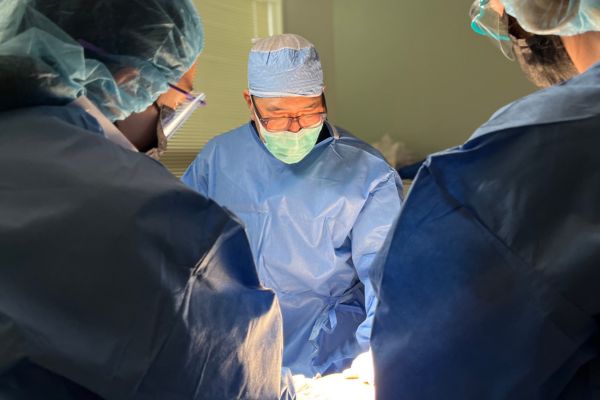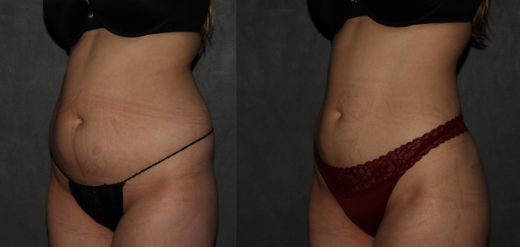
At The Lumen Center, our goal is to provide transformative results and an exceptional post-care experience for our patients in the Philadelphia area. We specialize in body contouring with Smart Liposuction – a very effective procedure for targeting areas with excess fat, sculpting your body, and achieving your desired aesthetic goals. While the anticipation leading up to the surgery can be exciting, preparing for the recovery period is essential. Understanding what to expect after liposuction can help you navigate the journey more smoothly and ensure optimal results.
Before we start, it’s important to note that your experience may vary from other patients. There are many aspects at play, including pain tolerance, recovery response, the number and size of treated areas, and the amount of fat removed. However, this guide will give you an understanding of the typical liposuction recovery, along with tips on making your recovery faster and easier.
Immediately after your liposuction procedure, you can expect some soreness and bruising, typically due to the minimally invasive nature of the surgery. A compression garment will be applied to the treated areas for comfort and support. It’s important to wear loose, comfortable clothing, as you may experience swelling. After the procedure, someone will need to drive you home. We’ll provide details on medications and a schedule for when to take them.
Managing your recovery environment is crucial during the first 48 hours after your liposuction procedure. You should prepare a recovery area in your home where you can rest comfortably and consider accessibility to essentials without needing to move much. We recommend a friend or family member assist you with activities for the first 24-48 hours and as needed.
The compression garment must remain on the treatment area but can be removed after 48 hours to shower. The garment needs to be worn 24 hours a day, two weeks after surgery. Wearing your compression garments is essential to achieving the best possible liposuction results.
To handle post-operative drainage, we’ll supply you with bandages, dressings, and absorbent pads. These are necessary for the initial 2-3 days to manage any fluid that may drain from the incision sites. Check the incisions daily and keep them clean and dry. It’s recommended that you change these dressings in a shower or tub.
Adhering to these post-operative care instructions can help ensure a safer and quicker recovery process, minimizing potential complications and discomfort.
Mild to moderate bruising and swelling are the most common side effects after liposuction. If needed, we can prescribe pain medication and recommend Tylenol/Acetaminophen for the first 48 hours after the procedure. Soreness and bruising are typically almost gone after the first-month post-op, and swelling will be dramatically reduced—your new, leaner body contours are taking shape!
Recovery time after laser liposuction is relatively short. Most patients can return to their normal activities and work (depending on the job’s physical demands) after a long weekend of recovery.
It is especially important to eat healthy and nutritious foods during the recovery process. A balanced diet of fruits, vegetables, lean proteins, and whole grains will help promote healing and ensure your body has the nutrients it needs to recover. Avoid processed and sugary foods since these can lead to inflammation and slow down the healing process.
At Lumen, we take great pride in our comprehensive post-procedure care process and planned schedule of follow-up appointments. After all, we want to make sure you’re healing well and making progress. It’s also an opportunity to answer the questions that will arise through your body contouring journey. Patients have their first follow-up appointment after 3 days when we remove the drains, and then one week after the procedure. We’ll then schedule you for follow-up appointments one month, three months, six months, and one year after your liposuction procedure.
Some patients see a noticeable difference shortly after surgery, usually within one week after the procedure. Results get better with time and full results are expected within 4-6 months when the skin reaches optimal tightening.

Liposuction permanently removes fat cells from a targeted area and gives your body a more contoured shape. That’s why a healthy diet and exercise regimen are essential to ensure the remaining fat cells don’t grow and to maintain your liposuction results.
At The Lumen Center in Bryn Mawr, PA (just outside of Philadelphia), our goal is to provide patients with life-changing treatments to help them look and feel their very best. Our expert team has years of experience performing body contouring procedures with stellar results – see the proof in our gallery. If you’re considering liposuction to improve your body shape or contours, contact us today to schedule a free consultation. You’ll have the opportunity to learn more about our services, answer your questions, and learn how we can help you achieve the body you’ve always wanted.

Sandra brings over 15 years of healthcare expertise to her role as a marketing writer, where she specializes in turning medical information into easy-to-understand content. Outside of work, she enjoys hiking with her family and reading.